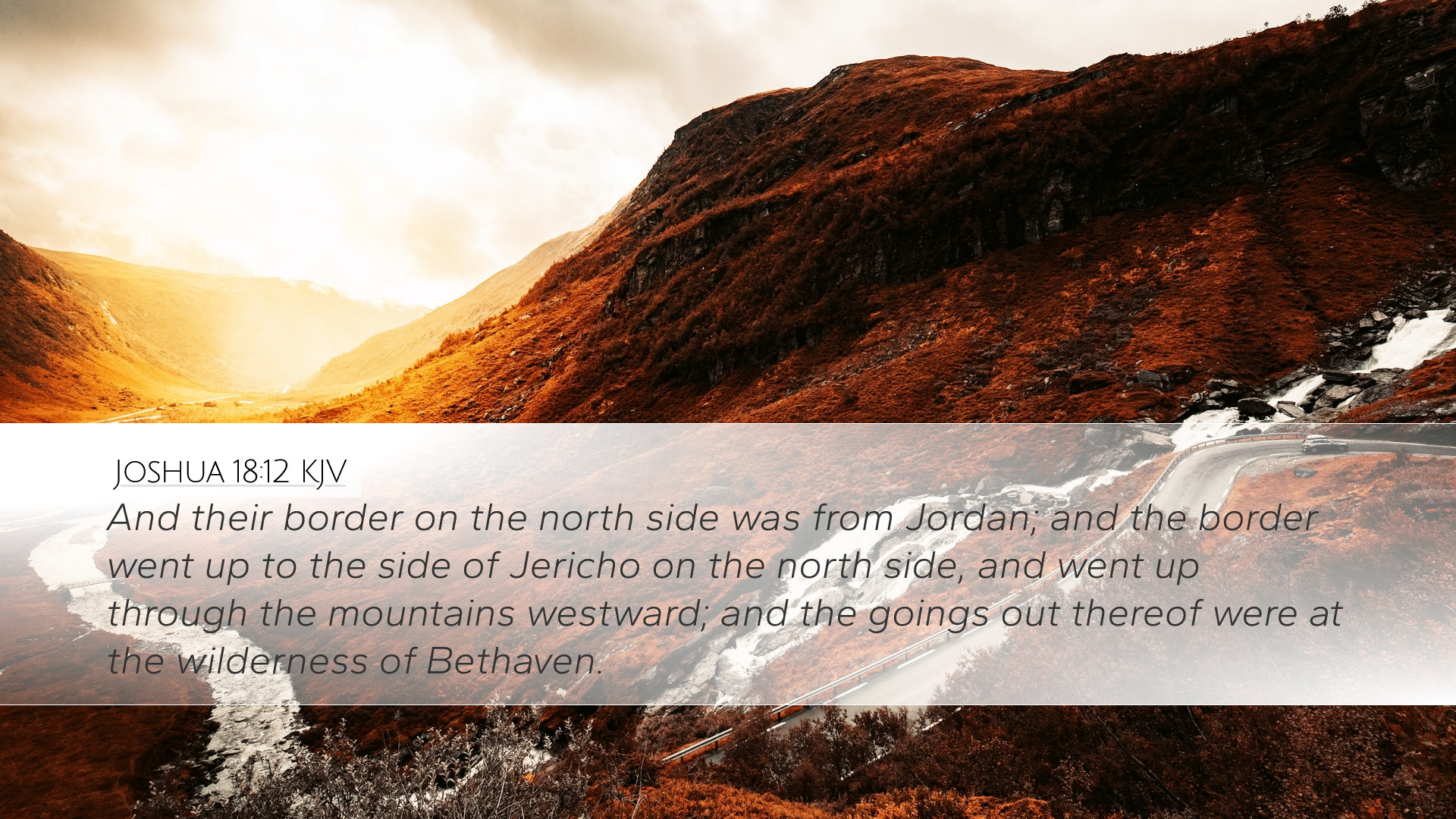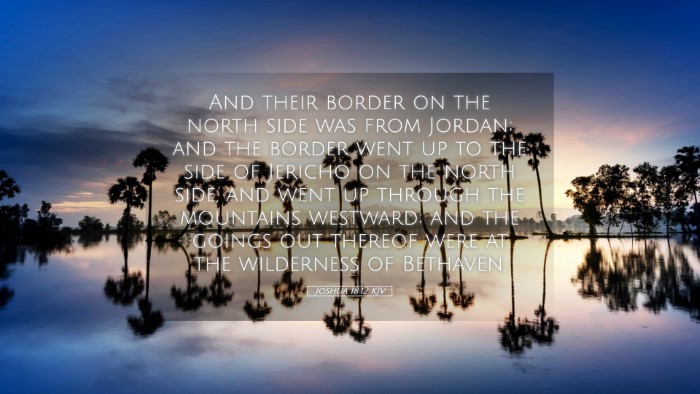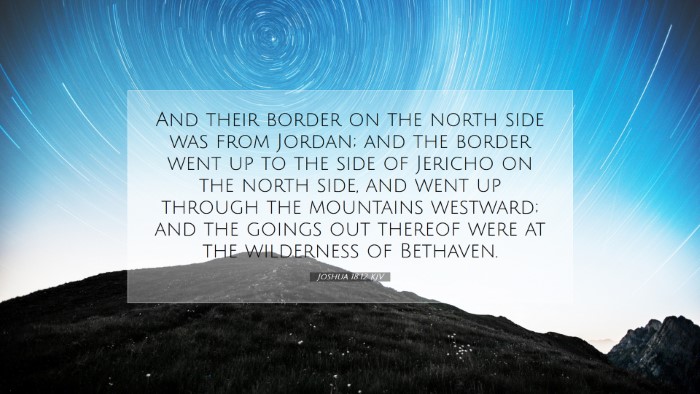Commentary on Joshua 18:12
Verse Reference: Joshua 18:12 (KJV) - "And their border on the north side was from Jordan; and the border went up to the side of Jericho on the north side, and went up through the mountains westward; and the goings out thereof were at the wilderness of Bethaven."
Overview
Joshua 18:12 describes the territorial boundary of the tribe of Benjamin as the Israelites settled in the Promised Land. This boundary demarcation not only serves to define the geographical limits of the tribe's inheritance but also highlights the orderliness of God's plan for each Israelite tribe's settlement. Insight into such details is essential for understanding the historical and theological implications of land distribution in the Scriptures.
Historical Context
Before delving into the verse, it is crucial to understand the background of Israel’s conquest of Canaan. As documented in the book of Joshua, the Israelites, led by Joshua, had entered the Promised Land after years of wandering in the desert following their exodus from Egypt. This historical moment epitomizes God’s faithfulness to His covenant promises made to Abraham, Isaac, and Jacob.
Key Themes and Insights
-
The Sovereignty of God:
Both Matthew Henry and Adam Clarke stress the importance of recognizing God’s sovereignty in the assignment of land to each tribe. The specific mentions of the borders illustrate not just a physical delimitation but serve as a testament to God’s divine will in establishing Israel.
-
Geographical Significance:
As noted by Albert Barnes, the precise geographic markers listed in this verse hold substantial meaning. The reference to Jericho, a city famously known for its fall, points to the historical events surrounding Israel’s conquest and serves to reinforce the miracle of God's deliverance.
-
Covenantal Land Promises:
Commentators highlight the significance of land as an essential component of the covenant. The fulfillment of land promises is a recurring motif throughout Biblical history, underscoring the themes of inheritance and faith in God's promises as emphasized by Clarke.
-
Division of the Land:
This verse marks a crucial point in the division of the land among the tribes. Henry points out that the orderly process of land distribution reflects God's desire for His people to dwell in peace and harmony, each tribe occupying its allotted territory without conflict.
Interpretive Insights
Understanding Joshua 18:12 requires a blending of exegetical analysis and theological reflection. Below are some interpretive insights gleaned from public domain commentaries:
-
Jericho's Role:
Jericho, often referred to as the "city of palms," symbolizes both victory and loss. The northward boundary reaching Jericho signifies not only a geographic landmark but a reminder of the triumphs of faith (Clarke).
-
Dimensions of the Territory:
The description of the borders signifies careful planning and divinely ordained divisions. Barnes notes that the Israelites cherished these clear demarcations, which aimed to reduce disputes and enhance unity among the tribes.
-
Spiritual Implications of Boundary:
The physical boundaries also have spiritual implications. Matthew Henry highlights that just as the Israelites had defined boundaries, Christians are called to maintain boundaries in their faith and practices, emphasizing holiness and distinctiveness in their walk with God.
Theological Reflections
In light of Joshua 18:12, several profound theological reflections emerge, catering to pastors and theologians alike:
-
God's Faithfulness:
This verse is a reminder of God's unyielding faithfulness to His promises. Each tribe receiving its land is indicative of the reliability of God to fulfill what He has promised. Believers today can anchor their faith in God’s unchanging nature to provide and fulfill His word (Henry).
-
The Call to Stewardship:
The land represents not only a physical inheritance but also a call to stewardship. The Israelites were to care for the land given to them, which could be seen as a foreshadowing of the believer's responsibility to care for God's creation (Barnes).
-
Unity Amidst Diversity:
The separate territories for each tribe reflect a divine ordering that allows for diversity within unity. This bears relevance to the modern Church, where despite different roles and gifts, believers are called to work towards a unified purpose (Clarke).
Conclusion
Joshua 18:12 serves as more than a registration of tribal boundaries; it embodies deeper themes of God's sovereignty, faithfulness, and the importance of living within divine parameters. For pastors, scholars, and students, the insights from classical commentaries can inspire a renewed commitment to understanding God’s word, recognizing His sovereignty in our lives, and diligently stewarding the blessings He grants. The verse reinforces the biblical principle that believers are called to live within God's designs, empowering them to navigate their spiritual journey with grace and assurance.


